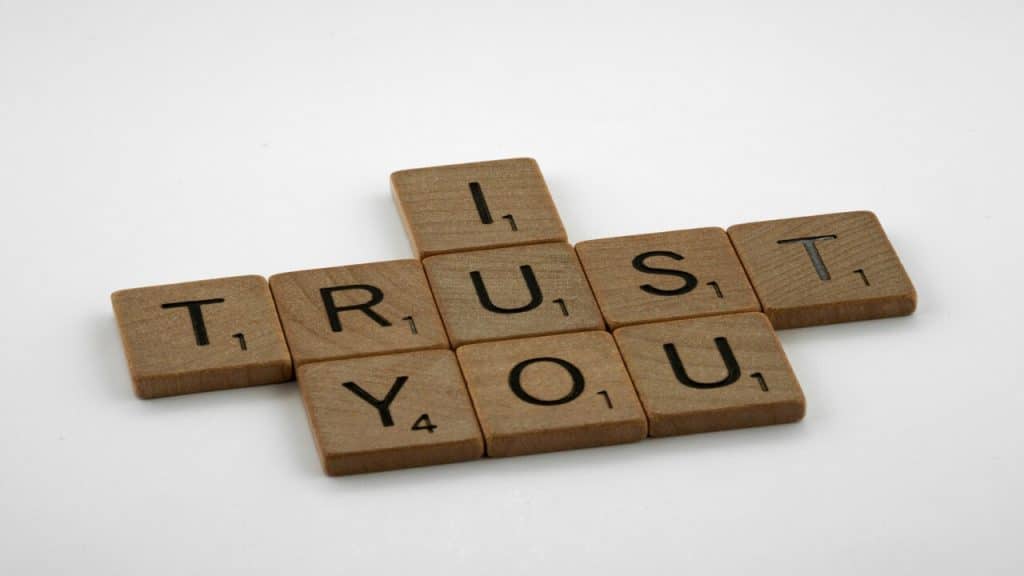
The spark can get you to the second date, but it can’t carry you through a difficult season. That flutter in your chest when you see them? Great–but it’s not enough. Emotional safety is what allows you to speak honestly, stay present, and feel like your full self. Without it, even the strongest physical pull will eventually wear thin.
If you’ve ever been in a relationship where you felt anxious more than you felt grounded, you know exactly what’s at stake. Chemistry might get all the press, but emotional safety is what makes love last.
1. You Can’t Build Trust Without It

Trust doesn’t come from liking someone–it comes from feeling emotionally safe with them. If you’re constantly second-guessing how they’ll react or feel like you have to filter your words to avoid backlash, your nervous system never settles. Emotional safety allows vulnerability to grow without fear of punishment. That’s what builds deep trust: not how much you desire each other, but how safe you feel in each other’s presence.
2. It Makes Conflict Repair Possible

Every couple argues. What matters more is how you come back from it. In emotionally safe relationships, disagreements don’t feel like threats–they’re simply tension that needs to be worked through. You can own your mistakes, apologize sincerely, and move forward without fear of retaliation or emotional withdrawal. That kind of repair isn’t possible if you’re afraid to speak honestly.
3. It Lets You Be Your Full Self

You shouldn’t have to shrink, mask, or twist yourself to be lovable. Emotional safety creates a space where you can express your needs, your quirks, your history–without judgment or shame. In that space, people flourish. You’re not worried about being too much or not enough. You can just be, and that’s the foundation of authentic connection.
4. It Reduces Relationship Anxiety

When emotional safety is missing, your brain is always scanning for danger. Did I say something wrong? Did their tone change? Are they pulling away? This mental static wears you down. In contrast, emotional safety lowers that noise. You feel secure in where you stand. You don’t need constant reassurance because the relationship itself feels like steady ground.
5. It Supports Healthy Attachment

Your attachment system is always reading cues–do I matter? Am I safe here? Am I too much? When those needs are met with responsiveness and care, secure attachment can grow, even if you didn’t have it in childhood. Emotional safety creates those conditions. It helps break cycles of anxious or avoidant behavior and opens the door to a calmer, more connected bond.
6. It Makes Intimacy More Meaningful

Physical intimacy without emotional safety can feel empty–or worse, confusing. When safety is present, affection, sex, and vulnerability carry a deeper weight. You’re not just touching bodies; you’re touching hearts. Emotional safety allows you to relax into the moment, give and receive freely, and feel seen instead of just desired.
7. It Encourages Open Communication

In a safe relationship, hard conversations aren’t landmines–they’re bridges. You’re not walking on eggshells, trying to manage someone else’s reactions. You can speak plainly and listen deeply, because both of you trust that honesty won’t destroy the connection. That kind of communication strengthens the bond instead of threatening it.
8. It Prevents Emotional Withholding

People don’t shut down because they don’t care–they shut down because it doesn’t feel safe to open up. In emotionally unsafe relationships, it’s easier to go quiet than to risk being misunderstood or rejected. But when safety is present, people share more. They risk more. They love more. That openness fuels intimacy in ways chemistry never could.
9. It Builds Consistency and Reliability

You don’t need grand gestures–you need someone who shows up the same way on Tuesday as they did on Saturday. Emotional safety is created through consistent behavior, predictable reactions, and reliability over time. That steady presence is what creates real security–not romantic highs, but grounded partnership.
10. It Helps Heal Old Wounds

Many of us carry emotional scars from past relationships or even childhood. A safe partner doesn’t need to fix you–but they do give you room to heal. When you’re not punished for being sensitive or guarded, you begin to let go of old defenses. Emotional safety doesn’t erase the past, but it gives you the present security to rewrite your future.
11. It Sets the Stage for Mutual Growth

In emotionally safe relationships, you don’t just grow as individuals–you grow together. There’s space to evolve, to question things, to take emotional risks. You’re not locked into outdated roles or afraid to stretch because the relationship allows for–and encourages–growth. That’s how long-term compatibility gets built: not from staying the same, but from growing safely side by side.
12. It Protects Against Manipulation

When emotional safety is prioritized, manipulation can’t get a foothold. You’re both encouraged to speak honestly, own your needs, and respect boundaries. No guilt-tripping, stonewalling, or gaslighting needed. That mutual respect kills off toxic power dynamics before they even begin. Safe love is clean love–it doesn’t need tricks.
13. It Makes Apologies Actually Matter

In emotionally unsafe relationships, apologies are often performative–or weaponized. But when emotional safety exists, apologies carry weight. They’re given freely, not extracted. And they’re received with grace, not skepticism. That cycle of responsibility and forgiveness keeps resentment from hardening and allows you to start fresh when mistakes are made.
14. It Lowers Defensiveness

If you’re always on edge, you can’t take feedback–you can only hear threat. Emotional safety softens that reflex. When you know your partner isn’t out to shame or blame you, you’re more open to hearing what they need. You stop bracing. You start listening. And that shift opens the door to better understanding, better teamwork, and better love.
15. It Helps You Regulate Together

We don’t just co-exist in relationships–we co-regulate. When one partner is distressed, the other can help calm things down. But this only works in a safe space. If emotional safety is lacking, your nervous systems just escalate each other. In safe relationships, your partner becomes a resource–not a trigger–and you learn how to find calm together.
16. It Supports Long-Term Stability

Hot chemistry burns fast–but safety simmers. It creates a dependable rhythm where both people feel grounded, even during life’s curveballs. Stability doesn’t mean boring–it means reliable, steady, and emotionally enriching. And when the foundation is safe, everything else–romance, ambition, family–has something solid to stand on.
17. It’s What Love Feels Like When It’s Real

At the end of the day, love without safety isn’t really love–it’s longing, performance, or anxiety dressed up as passion. Real love feels safe. It feels like coming home, not walking on a tightrope. You don’t have to audition for your place. You just get to be there. And that’s worth more than any spark that fades.






Ask Me Anything